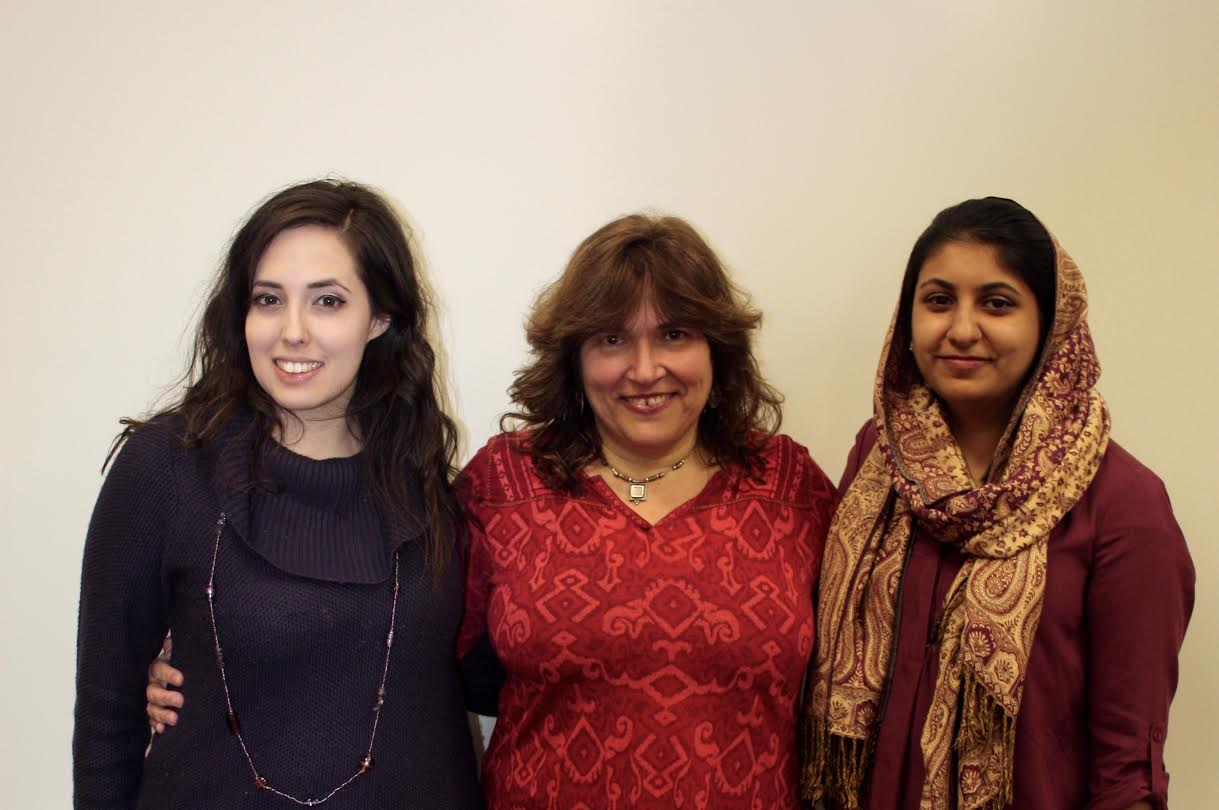Junior elementary education major Nahl Ilyas was in a classroom when she saw a group of kids teasing a first-grade boy for coloring with a pink crayon.
The students teasing him didn’t think boys should be coloring with pink, Ilyas said.
“Unfortunately, I was the only one who stepped in,” she said. “I told him his picture looked really nice, and the kid gave me a hug. But I noticed none of the other kids stood up for him. They continued to make fun of him for doing that.”
Following President Trump’s divisive election victory in November, a group of University of Maryland education majors conducting fieldwork in local elementary schools noticed an uptick in bullying, said Melissa Landa, an education professor.
[Read more: A UMD student group is donating 300 books to a D.C. juvenile detention center]
“A few days after the election, several of my students came in, in tears, really distraught, and they talked about what they had seen and heard in the elementary schools,” Landa said. “They said that children were saying terrible things to each other: ‘We’re going to build a wall, we’re going to send you back where you came from.'”
Landa then suggested to a few of her students that they create an anti-bullying children’s book to donate to local schools.
“The idea kind of came up in conversation,” said Clara Allsup, a 2016 alumna who helped work on the book. “We just wanted to be proactive and do something to try to combat bullying, and we thought that a book would be a great, simple way to start a conversation with kids and adults about what bullying looks like and what they can do to stop [it].”
So Landa asked her Introduction to Children’s Literature class, which had about 20 students, to anonymously tell her whether they wanted to participate.
“I didn’t want anyone to feel uncomfortable and I told them that it would be totally apolitical,” Landa said. “It would only focus on bullying.”
The whole class volunteered, Landa said.
“I was very touched and very encouraged,” Landa said. “There are many people who want to do something to help, who feel a lot of compassion and empathy for children and for different marginalized groups, and feel that they want to give back in some way.”
For a few weeks, the class created bullying scenarios, some of which were based on things they’d witnessed, to be featured in the book, which includes scenes of children with disabilities being made fun of for using sign language, a girl being teased for wearing a hijab and a boy being bullied for having two dads, among others.
After each scenario, the book asks what bystanders and what the child being bullied could do in the situation, Allsup said.
[Read more: After Betsy DeVos’ confirmation, UMD grad students hold a meeting about public education]
“We really wanted this to start a conversation between whoever is reading the book,” she said. “We wanted to give ideas for what kids can do if they see [bullying] happening around them, to give them multiple ways of talking about bullying.”
To make the book as realistic as possible, the students obtained parental permission to photograph children they knew, family members, friends and neighbors acting out the scenarios.
They self-published the book, entitled What Would You Do? A Book About Bullying, in English. With the help of students, family and friends, they have translated the book into about eight different languages, including Spanish, French and Hebrew, and are currently working on more, Landa said.
“It’s one of those things that’s relevant in any language,” Allsup said. “Bullying happens across the world.”
Mehrnoosh Mohammadian, a junior women’s studies major, helped translate the book into Farsi.
“The good part of the book is that different people in that age range can identify with the characters,” Mohammadian said. “If you are someone [who is] the victim of bullying, you can find yourself in that book. And if you are bullying others, you can see yourself in some of the characters, and you might be able to realize that your behavior is wrong.”
They hope to begin donating the books to local schools within a month before children leave for summer break, Allsup said.
“We want children to feel empowered and confident in intervening when they see another child being bullied,” Landa said. “Being a bystander is not acceptable, wherever we see bullying occur, whether in the classroom, on the playground, in the workplace [or] in politics. To be a bystander can’t be an option.”



